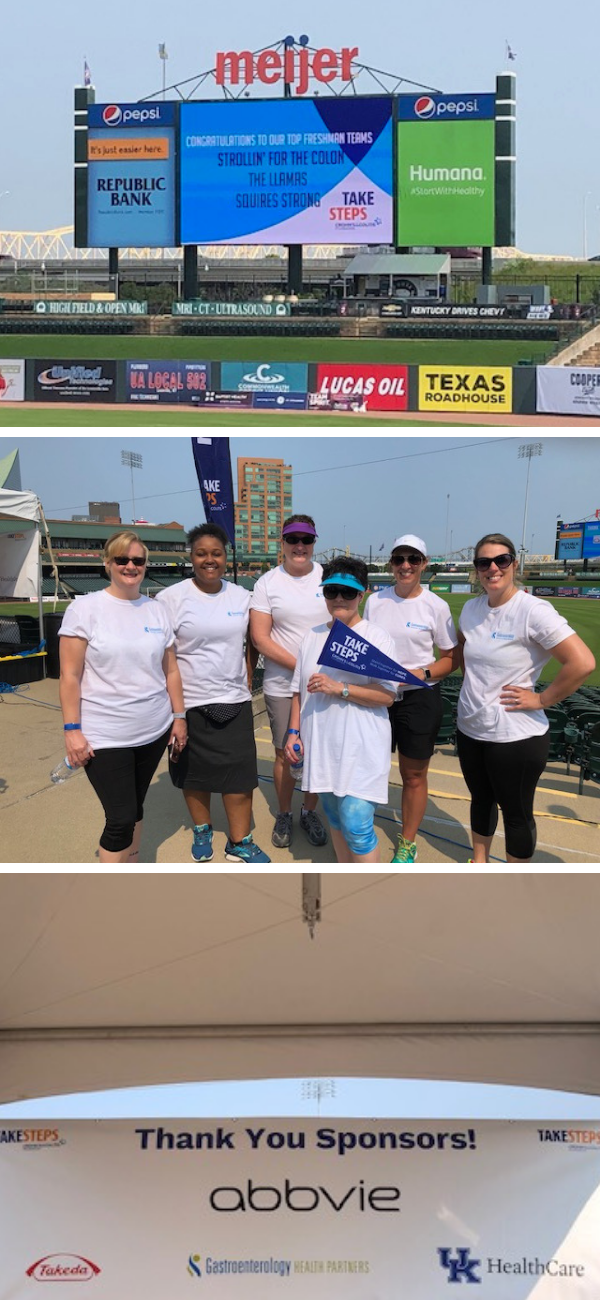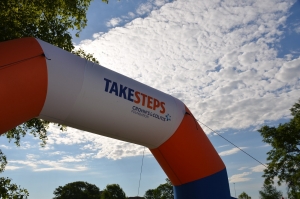Crohn’s & Colitis Foundation 2020 Take Steps Walk
Join us on Saturday, June 20th for the Crohn’s and Colitis Take Steps Virtual Walk
The Take Steps Walk is put on by the Crohn’s & Colitis Foundation, an organization with a mission to provide support and resources for people suffering from Inflammatory Bowel Disease. The nationwide walk will help fund patient services, education, advocacy and research.
Gastroenterology Health Partners proudly sponsors this event. Through better treatment methods and cures, we can improve the quality of life for those affected by IBD. To schedule an appointment and get screened, contact us today.
This Year’s Virtual Walk
In light of CDC guidelines during the ongoing COVID-19 pandemic, the Crohn’s & Colitis Foundation will not be hosting in person walks this year. Instead, they are hosting a national TAKE STEPS + VIRTUAL walk experience on Saturday, June 20, 2020. Visit their website to read a full update on the event.
What is Inflammatory Bowel Disease (IBD)?
IBD is a term that describes disorders involving chronic inflammation of the digestive tract. Crohn’s Disease and Ulcerative Colitis are two of the most common types of IBD. Crohn’s Disease affects the lining of the entire digestive tract. Ulcerative Colitis specifically inflames the lining of the colon and rectum.
While the causes for Crohn’s Disease and Ulcerative Colitis are currently unknown, combined they affect nearly 3.1 million Americans. Patients tend to get diagnosed between the ages of 15 and 35. However, the fastest growing segment of patients is children under the age of 18.
IBD and COVID-19
The Crohn’s & Colitis Foundation has compiled helpful information and resources on the topic of COVID-19 and IBD on their website. This includes video interviews with medical professionals, helpful tips, and other resources. Visit their website to learn more.
Join and Support the Walk
The Crohn’s and Colitis Take Steps Walk is a great opportunity for patients, families, healthcare providers and organizations to come together as a community and offer lasting support to one another. For those interested in registering as a virtual walker, donating, or creating a team of virtual walkers, visit the Virtual Walk FAQ page for more information. Each team and individual is able to set their own fundraising goal. Visit the Kentucky Take Steps page or the Indiana Take Steps page to learn more, register, and make a donation!

 Gastroenterology Health Partners’ first Louisville “Crohn’s and Colitis Take Steps” walk on Saturday, June 1st, 2019 was a great success and a lot of fun, as well!
Gastroenterology Health Partners’ first Louisville “Crohn’s and Colitis Take Steps” walk on Saturday, June 1st, 2019 was a great success and a lot of fun, as well!

